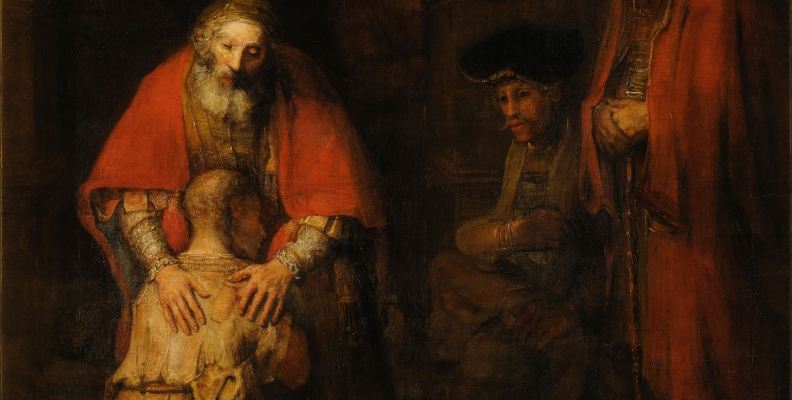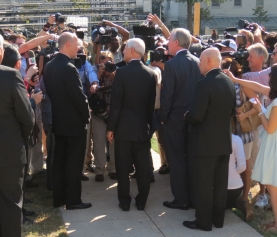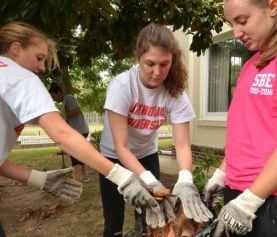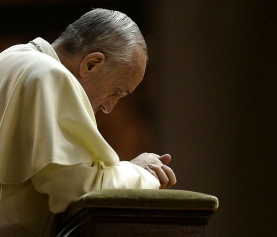
John Garvey: Saying Sorry
Pope Francis is famous for surprises. He makes surprise stops during his travels. He shows up at Mass unannounced. But perhaps the biggest surprise this year was his proclamation of an “Extraordinary Holy Year of Mercy” with the papal bull Misericordiae Vultus in April.
The jubilee year, which will begin on the Feast of the Immaculate Conception (December 8), will be a special time for the Church to “to be a credible witness to mercy, professing it and living it as the core of the revelation of Jesus Christ.” This, Pope Francis says, is particularly important today because the “practice of mercy is waning in the wider culture. In some cases the word seems to have dropped out of use.” There seems to be “no room for mercy” in the modern world.
But it’s not just the practice of offering mercy that we have lost. It’s also the practice of asking for it.
Our apologies are often not apologies at all. We say we apologize if we offended—without acknowledging that what we said or did was in fact an offense. We characterize misdeeds as “mistakes” or “poor decisions.” More often than not, we don’t apologize at all. Instead we let things blow over. Maybe we go out of our way to be kind to the person we have wronged. But rarely do we say, “I was wrong for having done X. I am sorry for it, and I ask your forgiveness.”
But offering mercy and asking for mercy go hand in hand.
First, to honestly admit guilt to another requires me to admit guilt to myself. And when I am conscious of my own failings it’s easier to forgive the failings of others. When the scribes and the Pharisees considered their own sins, they abandoned their plan to stone the woman caught in adultery (Jn. 8:5).
Second, when we ask for forgiveness, we create the opportunity for mercy. And once we have experienced mercy, we are more likely to believe it is possible and to ask for it. There is a wonderful scene in the classic children’s story The Wind in the Willows where Mole ignores his friend Rat’s advice and consequently overturns Rat’s boat, ruining his picnic lunch. The poor guilty Mole exclaims, “Ratty, my generous friend! I am very sorry indeed for my foolish and ungrateful conduct . . . Will you overlook it this once and forgive me, and let things go on as before?”
It is a moment of suspense and vulnerability. Mole has put the fate of their friendship in Rat’s hands and can only wait for his judgment. Rat’s reply is unanticipated generosity: “That’s all right, bless you!” Forgiveness is experienced as a wonderful and undeserved gift.
Confession is a wonderful place to begin asking for mercy. And during the Jubilee Year of Mercy Pope Francis has commended frequent reception of this sacrament. On a practical level confession teaches us how to make a good apology. It offers us, as Pope Francis says, the opportunity “to touch the grandeur of God’s mercy with [our] own hands.” Once we have experienced God’s mercy we can be credible witnesses of mercy, professing and living it.
— John Garvey is President of The Catholic University of America.








